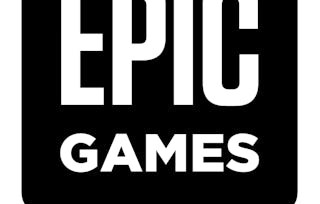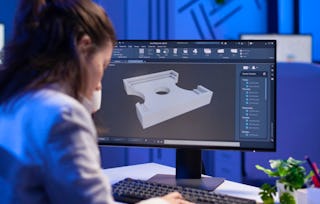Start creating your world. A game world is not just a backdrop for your game—be it minimal or detailed, contained or part of a much bigger universe, it provides the context for your player. Ultimately, a game world should feel alive and wholly unique to any player who will experience it.

World Design for Video Games

World Design for Video Games
This course is part of Game Design: Art and Concepts Specialization

Instructor: Théotime Vaillant
39,425 already enrolled
Included with
821 reviews
Skills you'll gain
Details to know

Add to your LinkedIn profile
See how employees at top companies are mastering in-demand skills

Build your subject-matter expertise
- Learn new concepts from industry experts
- Gain a foundational understanding of a subject or tool
- Develop job-relevant skills with hands-on projects
- Earn a shareable career certificate

There are 4 modules in this course
During this first week, we'll start with a brief overview of game worlds and game design. We’ll also examine environments and larger world-based concepts to see how games incorporate a macro-level view of how they progress. At the end of the week, a short assignment prompts you to examine, analyze and comment on games that marked or interested you in terms of their environment design.
What's included
4 videos8 readings1 peer review1 discussion prompt
Where do you start when designing a world? Where should you begin to look for sparking that creative impulse? This week we will be exploring ideas and presentation techniques for a game’s environment and world design. I encourage you to draw inspiration from other art practices, artists, video games or even your everyday surroundings. The assignment at the end of the week challenges you to present a proposal for a possible world through concept artwork for peer evaluation.
What's included
7 videos2 readings1 peer review1 discussion prompt
How do you move in a video game world? This week we’ll discuss fundamental components and concepts in world and level design. Naturally, these evolve as the gameplay progresses but there are specific strategies you can use to create the finer details in a game environment. At the end of the week, you are challenged to take the previous week’s visual research exercise and expand upon it, giving it shape and volume.
What's included
9 videos4 readings1 peer review1 discussion prompt
Bring your game world to life. In this final week, we’ll be putting down what will eventually define the look, ambience and atmosphere of your world, learning specifically how to convey a mood for a unique and engaging game environment. Go back to your assignment from Week 2 to pull from your inspirations and models. Build on your volumetric model from Week 3 and add details. Define the light, the color palette and the overall visual context of your game space.
What's included
6 videos4 readings1 peer review
Earn a career certificate
Add this credential to your LinkedIn profile, resume, or CV. Share it on social media and in your performance review.
Instructor

Offered by
Explore more from Music and Art
 Status: Free Trial
Status: Free Trial Status: Free Trial
Status: Free Trial Status: Free Trial
Status: Free Trial Status: Free Trial
Status: Free Trial
Why people choose Coursera for their career

Felipe M.

Jennifer J.

Larry W.

Chaitanya A.
Learner reviews
- 5 stars
66.18%
- 4 stars
21.65%
- 3 stars
6.44%
- 2 stars
3.52%
- 1 star
2.18%
Showing 3 of 821
Reviewed on Dec 9, 2021
I really enjoyed this course, it was a great chance to conceptualize and visualize an entire environment and a visual world!
Reviewed on Jul 20, 2020
Great course! I love how they bring techniques and concepts from other disciplines like gardening, teacher, and ballet that are super useful for world and level design.
Reviewed on Oct 12, 2021
It's a pretty great course, it shows the basics of worldbuing and from there we can start exploring the deepness of this topic.

Open new doors with Coursera Plus
Unlimited access to 10,000+ world-class courses, hands-on projects, and job-ready certificate programs - all included in your subscription
Advance your career with an online degree
Earn a degree from world-class universities - 100% online
Join over 3,400 global companies that choose Coursera for Business
Upskill your employees to excel in the digital economy
Frequently asked questions
To access the course materials, assignments and to earn a Certificate, you will need to purchase the Certificate experience when you enroll in a course. You can try a Free Trial instead, or apply for Financial Aid. The course may offer 'Full Course, No Certificate' instead. This option lets you see all course materials, submit required assessments, and get a final grade. This also means that you will not be able to purchase a Certificate experience.
When you enroll in the course, you get access to all of the courses in the Specialization, and you earn a certificate when you complete the work. Your electronic Certificate will be added to your Accomplishments page - from there, you can print your Certificate or add it to your LinkedIn profile.
Yes. In select learning programs, you can apply for financial aid or a scholarship if you can’t afford the enrollment fee. If fin aid or scholarship is available for your learning program selection, you’ll find a link to apply on the description page.
More questions
Financial aid available,
¹ Some assignments in this course are AI-graded. For these assignments, your data will be used in accordance with Coursera's Privacy Notice.

